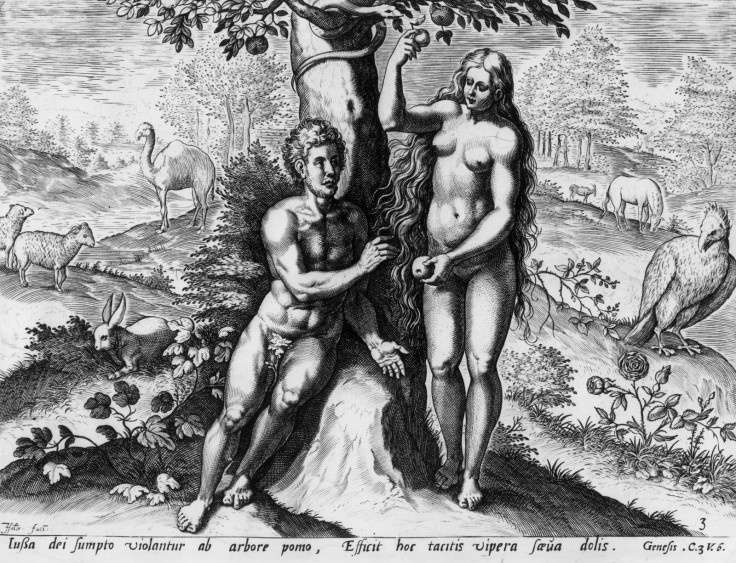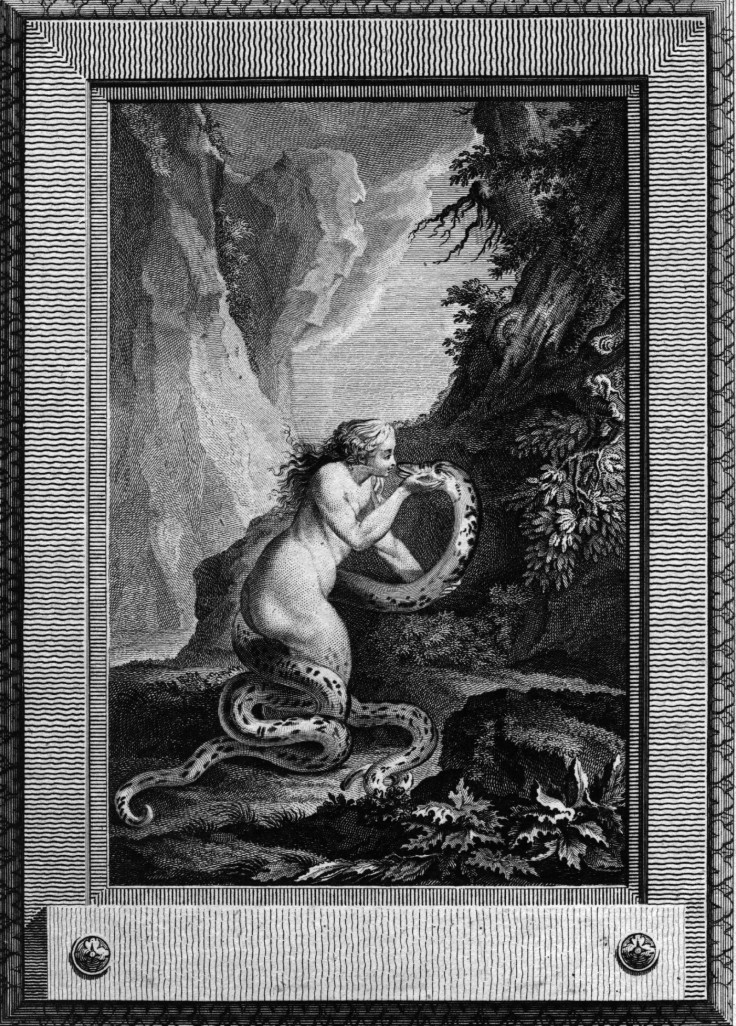The great religious taboo: Why are girls taught that periods are God's curse?
Misogyny and religion seem inextricably linked - blood means God shuns 'unclean' women.

Religion is a funny thing. It is constructed in such a way that followers are obliged to believe that their formula is the correct one and that all those with faith are among the righteous and those without are among the lost and the damned. While my own family did not browbeat me with their beliefs, my experience of Catholic school was certainly filled with shame-based language and "othering". One subject which was posed to cause particular shame was menstruation.
My family was modestly Christian; a thing of note given the hyper-evangelical, Bible-thumping, snake-handling performance of faith that is almost tradition for those from the Southern parts of the US. My grandmother taught Sunday School. My grandfather was an usher.
I attended all-white Catholic schools, but I was not white or Catholic. The landmines were everywhere. Theology classes were fraught with antagonism and contention, particularly once I entered high school and began asking pointed questions about the dogma we were obliged to not only learn, but agree with.
In particular, I took exception to the ways in which Eve is constructed in a Judeo-Christian context. The story of Eve was in fact the primary catalyst for me to begin looking elsewhere for God or something like it because, as far as I was concerned, any faith tradition that deliberately erases women, vilifies them, shames them or deems them cursed is anathema to anything divine.
Let me isolate two critical things about the story of Eve that I inherited. The first is the story of her creation. We learn, in the book of Genesis, that Adam was God's idea. After the invention of water and earth and sky, God makes man. And then as the story goes, man gets lonely and asks for a companion. And God accommodates the request and makes Eve from Adam's rib.
Okay, let's stop right there.
Even as a little girl I resented that and could hear how laced with agenda that story was. Man is divine but woman is some science experiment that God acquiesced to? This story has been propped up so often by those who seek to legitimise misogyny by citing that the very invention of woman is evidence of how flawed and distant from God we must be.
The second story is of course when Eve defied God in the Garden of Eden and as a result all women after her would be cursed with blood every month (menstruation) and painful childbirth. Such a story, treated as dogma, is dangerous.
This uninterrogated tradition of maligning the machinery of a woman's body and suggesting that even the God we serve is repelled by it, arms toxic masculinity, and supports the template of man as leader, man as more divine, and man whose likeness most mirrors God's
Why do we find the disavowal of women on their menses across religious traditions? This language, this uninterrogated tradition of maligning the machinery of a woman's body and suggesting that even the God we serve is repelled by it, arms toxic masculinity, props up and supports the template of man as leader, man as more divine and man whose image and likeness most mirrors God's.
Further, it suggests that man and God are in concert with each other in reminding women that they are less valuable, less useful, and certainly less significant. Such thinking is aligned with the sacrificing of women, the burning of "witches", Jezebel being dashed to bits and eaten by dogs, the women who were stoned to death (in Biblical and contemporary time) and the ritual of rape.
God cannot be a woman. Woman cannot be like God. Women are evidence of a curse. And who wants that in the church? In the temple? In the mosque?

Misogyny and religion seem to be inextricably linked. Religion has been set up to add weight and volume to our identities; to offer breadcrumbs to follow while negotiating the human experience. Many women bleed every month. If they practice one of the Abrahamic religions – Judaism, Christianity, or Islam – they learn very early that when they are on their periods, the doors of the church are not open.
The temple is not theirs (Judaism). They are not permitted to make salat (Islam). In the Bible, in the book of Leviticus (15:19-23) it states that a woman on her period is to isolate herself for a period of seven days; that whatever or whoever she touches while menstruating becomes impure.
Women are evidence of a curse. And who wants that in the church? In the temple? In the mosque?
In the Quran (al-Baqarah 2:222) it states that God forbids intercourse with women during the time of menstruation and encourages husbands to keep away from their wives. But these prohibitions are present in other faith traditions as well.
In Hinduism, for example, menstruating women are not permitted to enter the kitchen or the temple. They may not bathe or have sex or touch anyone, male or female. Think about that. A woman on her period sullies everything she touches? A woman on her period is not permitted access to the things that engender belonging and community.
In other words, when you are on your period God stops speaking to you. Your prayers do not reach him. I hope I don't have to flesh out how that kind of messaging generates deep feelings of shame and self-loathing for women. It also positions us to be available for abuse and erasure. If God Almighty finds us unclean, what choice does man really have to perceive of us differently?
When you are on your period God stops speaking to you. Your prayers do not reach him.
These days my emphasis on gyno-centric celebration is about renaming the body; it is about the exaltation of that which we have been taught to revile. Where we are taught not to talk about our periods in polite company, I have discussed (rather loudly) my menstrual cycle in a room full of men at a state department meeting. I told 300 college kids at St. Joe's University in Pennsylvania that I needed to run to the bathroom because I was leaking past my Diva Cup. I went to Twitter later to describe how I gushed like a geyser all over a public bathroom floor when I took aforementioned Diva Cup out.
Once, while on a busy street corner at a bistro in New Jersey, I started my period just as I sat down to eat my dinner. I didn't get up. I didn't stop eating my meal. I just bled...right on that sky blue romper I loved so much. (I still have it.)
I know I am supposed to acquiesce to the idea that bleeding every month makes me less holy, less worthy of heaven, but how could I ever align myself with that when every single month I bleed for five days and I don't die? Every month my uterus sheds itself and becomes new again. As far as I am concerned that is remarkable and worthy of an amen or two.
So I say amen. I would write it in blood on the church pews if I could. And I would challenge and defy any thinking that doesn't recognise how tectonic we are; how we transmogrify over and over again despite the many cultural, spiritual, linguistic, and quite literal crucifixions we suffer.
This is an edited extract from Jesus, Muhammad, and the Goddess anthology
Dominique Christina is the author of two poetry collections and a book of essays. She is the two time Women of the World Slam Champion and National Poetry Slam Champion.
© Copyright IBTimes 2025. All rights reserved.




















